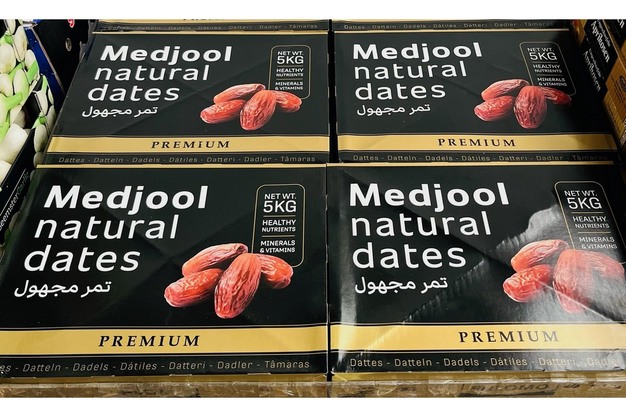After Easter, imported fruits traditionally make way for domestic spring heralds, notably asparagus and strawberries. "Due to the early Easter holiday and the high asparagus prices, we're looking back at a mixed Easter business," Johann Bergmann, branch manager of Raiffeisen Obst & Gemüse, comments. "We are now gradually starting with the first Dutch greenhouse strawberries of the Sonsation variety, which are very well received by our buyers." The prices for the season are roughly at the same level as last year.
The wholesale company based in Leverkusen serves a mixed clientele, consisting of mobile traders, independent supermarkets, and the gastronomy sector. Citrus fruits traditionally count as the volume drivers in winter. Bergmann: "Valencia juice oranges of Egyptian origin are especially popular among our Turkish customers. Also, the Spanish oranges of the Bouquet brand have performed better this season than ever before. The Navelina variety has now ended, but Lane Late will still be available for a few more weeks."

The team of Raiffeisen Obst und Gemüse, with Johann Bergmann (5th from left) next to seller Ogulcan Sariboga.
The Moroccan Nadorcott mandarins are also nearing the end of their season, Bergmann continues. "This somewhat cheaper mandarin has performed surprisingly well this year compared to last year. In addition, we also continue to deal in Orri clementines, both from Spain and Israel." During Ramadan, dates of Israeli origin are also very popular in ethnic specialty stores. "We are now offering Super Jumbo dates of the Shlomo brand for the first time, which we got to know at the Fruit Logistica in Berlin. Despite our initial fears, the war situation in Israel has not affected the quantities, qualities, or prices of the Israeli goods." According to Bergmann, this applies to both the dates and the Orri clementines.
Increased quality standards
In contrast to the Israel war, partially inflationary price rallies noticeably impact the business, the fruit wholesaler observes. "Our pick-up customers turn over every apple when they shop with us on-site. As prices rise for many products, customers in the store have also become more quality-conscious, meaning they demand a certain quality standard when they pay this premium price. This, in turn, leads to goods being more frequently complained about for minor issues, which might not have been the case before. Especially with sensitive products, like colorful salads, this leads to increased waste. This forces us to pay even closer attention to quality, which we manage to do well - thanks to our well-trained staff."

Steady Growth
Despite multiple crises, Raiffeisen Obst & Gemüse has recorded a steady growth in recent years. The company benefits especially from close cooperation with Landgard and the optimal location between the two metropolises of Düsseldorf and Cologne. Both cities are now facing the closure of their local wholesale markets. "We do notice that many buyers who have always sourced their supplies from the wholesale markets are now looking for new suppliers. Some of these customers have already been partially or completely won over by us."
Images: Raiffeisen Obst & Gemüse GmbH
For more information:
Johann Bergmann
Raiffeisen Obst & Gemüse GmbH
Robert-Koch-Straße 25-27
51379 Leverkusen
Tel: 02171 / 400422
Email: [email protected]
www.obstgemuese-raiffeisen.de
